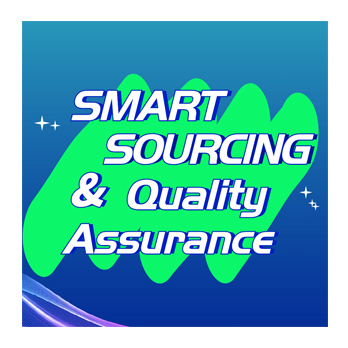
Finding the perfect QA outsourcing provider can feel overwhelming, but understanding your goals simplifies the process. You need a partner capable of delivering precise solutions that align with your business needs. Quality assurance outsourcing plays a critical role in ensuring your software performs seamlessly while meeting industry standards.
When hiring an IT outsourcing partner, prioritize their ability to integrate with your operations. Their expertise should not only enhance your product but also streamline workflows. The right collaboration leads to software excellence and long-term success.

Key Takeaways
• Know what QA services you need. Be clear about your needs to talk well with providers.
• Set clear goals and measures. Use these to check if the provider is doing a good job.
• Check if the provider knows both manual and automated testing. Using both types gives better results.
• See if the provider knows your industry. Pick one who understands your field and its rules.
• Make sure communication is easy. The provider should give updates and use simple ways to work together.
• Try a small project first. Test their skills and communication before starting bigger tasks.
• Read the contract carefully. Check prices, deadlines, and what they will deliver to avoid problems.
• Choose a provider with similar values. This helps build a strong and successful partnership.
Define Your QA Needs and Goals
Identify Business Objectives
Determine QA service scope
Before selecting a software outsourcing company, you must define the scope of quality assurance services required for your project. Start by analyzing your software's complexity and identifying the areas that need testing. For instance, does your project require functional testing, performance testing, or both? Clarifying these details helps you communicate your project requirements effectively to the outsourcing development company.
A clear QA service scope ensures that the provider understands your goals and delivers tailored solutions. This step also prevents unnecessary delays and ensures the testing process aligns with your business objectives.
Set quality benchmarks and KPIs
Establishing quality benchmarks and key performance indicators (KPIs) is essential for measuring success. Define what "quality" means for your project. For example, you might prioritize bug-free functionality, fast load times, or seamless user experiences. Once you set these benchmarks, you can track the provider's performance and ensure they meet your expectations.
Use KPIs like defect detection rates, test coverage, and resolution times to evaluate progress. These metrics provide a clear picture of whether the outsourcing development company is meeting your goals. By setting measurable standards, you can hold the provider accountable and ensure consistent quality assurance outsourcing results.
Budget and Timeline Considerations
Assess financial constraints
Budget plays a significant role in hiring the best software outsourcing companies. Determine how much you can allocate to quality assurance without compromising other aspects of your business. Research the pricing models of software development outsourcing companies to find one that fits your budget.
Some providers offer flexible pricing options, such as pay-per-project or hourly rates. Choose a model that aligns with your financial constraints while ensuring high-quality results. Remember, the cheapest option may not always deliver the best value.
Define project deadlines
Timelines are just as important as budgets. Clearly outline your project deadlines and communicate them to the software outsourcing company. A reliable provider will assess your timeline and confirm whether they can meet your expectations.
Break down your project into smaller milestones to track progress effectively. This approach ensures that the provider stays on schedule and delivers results within the agreed timeframe. Timely delivery is crucial for maintaining your business operations and achieving your goals.
Evaluate Expertise in Quality Assurance Outsourcing
Assess QA Methodologies and Tools
Expertise in automation and manual testing
When you evaluate outsourcing companies, their technical expertise in both automation and manual testing should be a top priority. Automation testing speeds up repetitive tasks and ensures consistency, while manual testing uncovers nuanced issues that automated tools might miss. A reliable software outsourcing company will excel in both areas, offering a balanced approach tailored to your project needs.
Ask about their experience with automation frameworks like Selenium, Appium, or Cypress. For manual testing, inquire about their ability to simulate real-world scenarios and identify edge cases. This combination of skills ensures comprehensive test coverage and robust software performance.
Familiarity with industry-standard tools
The best software outsourcing companies stay updated with the latest tools and technologies. Tools like JIRA, TestRail, and Postman are essential for managing test cases, tracking bugs, and ensuring seamless API testing. When selecting a provider, confirm their familiarity with these tools and their ability to integrate them into your workflow.
A software outsourcing company with strong technical expertise will also adapt to your preferred tools if needed. This flexibility demonstrates their commitment to aligning with your processes and delivering results that meet your expectations.
Industry-Specific Experience
Verify domain expertise
Domain expertise is crucial when choosing an outsourcing development company. A provider with experience in your industry understands its unique challenges and compliance requirements. For example, if you operate in healthcare, the provider should know how to handle sensitive data and adhere to regulations like HIPAA.
Request examples of past projects within your industry. This will help you gauge their ability to address specific needs and deliver solutions that align with your business goals. Their technical strengths in your domain can significantly impact the success of your project.
Look for certifications
Certifications validate a provider’s technical expertise and commitment to quality. Look for certifications like ISTQB (International Software Testing Qualifications Board) or CMMI (Capability Maturity Model Integration). These credentials indicate that the provider follows industry best practices and maintains high standards in quality assurance outsourcing.
Certifications also reflect a provider’s dedication to continuous improvement. A certified outsourcing development company is more likely to stay updated with evolving technologies and methodologies, ensuring your project benefits from the latest advancements.
Assess Communication and Collaboration Skills
Responsiveness and Transparency
Timely updates and clear communication
Effective communication is the backbone of any successful partnership. When outsourcing quality assurance, you need a provider who keeps you informed at every stage of the project. Regular updates ensure you stay aware of progress and any potential challenges. This transparency helps you make timely decisions and maintain control over the process.
Ask the provider about their reporting practices. Do they offer daily or weekly updates? Are their reports easy to understand? Clear communication builds trust and ensures both parties remain aligned on project goals.
Effective communication channels
The tools and platforms used for communication play a significant role in collaboration. A reliable provider will use industry-standard channels like Slack, Microsoft Teams, or email to stay connected. These tools allow for quick responses and seamless information sharing.
You should also confirm the provider's availability. Are they accessible during your working hours? Do they respond promptly to queries? Consistent and effective communication ensures smooth coordination and minimizes misunderstandings.
Team Collaboration
Integration with in-house teams
A successful outsourcing partnership depends on how well the provider integrates with your in-house team. The provider should understand your workflows and adapt to your existing processes. This alignment ensures that both teams work as a cohesive unit toward shared objectives.
Encourage open communication between your team and the provider. Regular meetings and collaborative tools can help bridge any gaps. When both teams work together effectively, the project benefits from diverse perspectives and expertise.
Adaptability to workflows
Every organization has unique workflows and processes. The best outsourcing providers demonstrate flexibility and adapt to your way of working. Whether you use Agile, Scrum, or another methodology, the provider should align with your approach.
Discuss your preferred workflows during the initial stages of the partnership. This ensures the provider understands your expectations and can deliver results that meet your standards. Adaptability fosters a smoother collaboration and enhances the overall success of the project.
Verify Security, Compliance, and Scalability
Data Security Standards
Adherence to regulations like GDPR or HIPAA
When outsourcing quality assurance, you must ensure the provider complies with relevant data protection regulations. Standards like GDPR (General Data Protection Regulation) and HIPAA (Health Insurance Portability and Accountability Act) are critical for safeguarding sensitive information. A software outsourcing company that adheres to these regulations demonstrates its commitment to protecting your data.
Ask the provider about their compliance measures. Do they have policies in place to meet these standards? For example, GDPR requires strict consent protocols and data minimization practices. HIPAA mandates secure handling of healthcare data. Verifying these details ensures your project aligns with legal requirements and avoids potential penalties.
Secure data handling practices
Data security goes beyond compliance. You need a provider with robust data protection policies to prevent breaches. Look for practices like encryption, secure access controls, and regular audits. These measures ensure your data remains safe throughout the project.
A reliable outsourcing development company will also train its team on secure data handling. This minimizes human errors and strengthens overall security. Discuss these practices during the selection process to confirm the provider prioritizes your data's safety.
Scalability of Services
Ability to handle growing demands
Your business needs may evolve over time. The best software outsourcing companies can scale their services to match your growth. Whether you need additional testing resources or expanded service coverage, the provider should adapt to your changing requirements.
Ask about their capacity to handle larger projects. Do they have the infrastructure and expertise to support your growth? A scalable provider ensures your project remains on track, even as demands increase. This flexibility is essential for long-term success.
Flexibility in scaling operations
Scalability also involves operational flexibility. A software outsourcing company should adjust its processes to meet your needs. For instance, they might increase testing frequency during peak periods or allocate more resources to critical tasks.
Discuss their approach to scaling operations. Do they have a plan for managing sudden changes? A provider with a proactive strategy ensures smooth transitions and consistent results. This adaptability makes them a valuable partner for your business.
Tip: Choose a provider that combines strong data security with scalable services. This ensures your project stays secure and adaptable, no matter how your needs evolve.
Review Cultural and Strategic Alignment
Cultural Compatibility
Alignment in work ethics and values
Cultural alignment plays a vital role in building a strong outsourcing partnership. When selecting a software outsourcing company, you should evaluate whether their work ethics and values align with your business. A provider that shares your commitment to quality and professionalism will integrate seamlessly into your operations.
Ask about their approach to teamwork, problem-solving, and accountability. Do they prioritize transparency and integrity? These qualities ensure the provider respects your goals and delivers results that reflect your standards. A shared cultural foundation fosters trust and collaboration, which are essential for long-term collaboration.
Similar time zones or work hours
Time zone differences can impact communication and project timelines. Choosing a software outsourcing company that operates in a similar time zone or offers overlapping work hours can simplify coordination. This alignment ensures you receive timely updates and can address issues without delays.
Discuss their availability during your working hours. Are they flexible enough to accommodate your schedule? A provider that prioritizes accessibility demonstrates their commitment to meeting your business needs. This compatibility enhances efficiency and strengthens your outsourcing development company relationship.
Strategic Alignment
Alignment with business goals
A successful outsourcing partnership requires alignment with your business goals. The provider should understand your objectives and tailor their services to help you achieve them. For example, if your goal is to improve software performance, the provider should focus on delivering high-quality testing solutions.
Share your goals during the initial discussions. Ask how they plan to support your objectives and measure success. A provider that aligns with your goals will deliver results that contribute to your overall business growth. This strategic alignment ensures your partnership remains focused and productive.
Long-term partnership potential
When evaluating software development outsourcing companies, consider their potential for long-term collaboration. A provider that invests in understanding your business and goals is more likely to become a reliable partner. Long-term collaboration offers consistency, reduces onboarding time, and builds a deeper understanding of your needs.
Assess their track record with other clients. Do they have a history of maintaining long-term relationships? A provider with a proven commitment to long-term collaboration will prioritize your success and adapt to your evolving requirements. This approach ensures your partnership grows stronger over time.
Tip: Prioritize cultural alignment and strategic compatibility when choosing a provider. These factors create a foundation for a successful and enduring partnership.
Validate the IT Outsourcing Partner Through References
Client Testimonials
Feedback on reliability and performance
Client testimonials provide valuable insights into the reliability and performance of an IT outsourcing partner. You should look for reviews that highlight the provider’s ability to deliver consistent results. Positive feedback about their attention to detail and commitment to quality indicates a dependable partner.
Ask for testimonials from previous clients who worked on similar projects. These reviews often reveal how the provider handled challenges and maintained high standards. Reliable software outsourcing companies consistently meet expectations, ensuring your project stays on track.
Ability to meet deadlines
Timely delivery is crucial for any outsourcing partnership. Client testimonials can help you assess whether the provider respects deadlines. Look for feedback that mentions their ability to complete tasks within the agreed timeframe.
A software outsourcing company that prioritizes deadlines demonstrates professionalism and efficiency. Delays can disrupt your operations, so choosing a provider with a proven track record of punctuality is essential. Testimonials that emphasize their time management skills offer reassurance that your project will progress smoothly.
Case Studies
Examples of similar projects
Case studies showcase the provider’s expertise and ability to handle projects like yours. Reviewing examples of similar projects helps you understand their approach and problem-solving skills. You should focus on case studies that align with your industry or project requirements.
For instance, if you need software testing for a healthcare application, look for case studies involving healthcare projects. These examples demonstrate the provider’s familiarity with industry-specific challenges. The best software outsourcing companies use case studies to highlight their technical strengths and successful outcomes.
Problem-solving capabilities
Problem-solving is a critical skill for any outsourcing development company. Case studies often detail how the provider addressed complex issues during a project. You should evaluate their ability to identify problems, propose solutions, and implement fixes effectively.
Look for examples where the provider overcame obstacles, such as tight deadlines or unexpected technical challenges. These stories reveal their adaptability and commitment to delivering results. A software development outsourcing company with strong problem-solving capabilities ensures your project remains on course, even when faced with difficulties.
Tip: Combine insights from client testimonials and case studies to make an informed decision. These references provide a comprehensive view of the provider’s reliability, expertise, and problem-solving skills.
Test the Partnership with a Pilot Project
Scope of the Pilot
Small, manageable project
Starting with a small, manageable project is the best way to test your partnership with a software outsourcing company. This approach allows you to evaluate their capabilities without committing to a large-scale engagement. Choose a project that reflects your core requirements but remains limited in scope. For instance, you might assign a specific module or feature for testing. This ensures the provider can demonstrate their expertise while minimizing risks.
A smaller project also helps you gauge their ability to meet deadlines and deliver quality results. By focusing on a defined task, you can observe how they handle challenges and adapt to your expectations. This step lays the foundation for a successful long-term collaboration.
Clear objectives and evaluation criteria
Defining clear objectives and evaluation criteria is essential for a productive pilot project. You need to outline what you aim to achieve and how you will measure success. For example, your objectives might include identifying critical bugs, improving test coverage, or ensuring compatibility across devices.
Establish measurable criteria to assess the provider’s performance. Metrics like defect detection rates, adherence to timelines, and communication quality can help you evaluate their effectiveness. Share these expectations upfront to ensure both parties remain aligned throughout the pilot. Clear goals and criteria make it easier to determine whether the outsourcing development company is the right fit for your needs.
Evaluate Pilot Results
Quality of deliverables
The quality of deliverables is a key indicator of a provider’s competence. During the pilot, closely examine the results they produce. Are the test cases thorough and well-documented? Do the reports provide actionable insights? High-quality deliverables demonstrate the provider’s attention to detail and commitment to excellence.
Compare the outcomes against your predefined objectives. For instance, if your goal was to identify critical bugs, assess whether the provider successfully uncovered them. Consistent quality in their work reflects their ability to handle larger projects in the future. This evaluation helps you decide if they align with your standards and expectations.
Communication during the pilot
Effective communication is just as important as technical expertise. During the pilot, monitor how the provider interacts with your team. Do they provide regular updates? Are they responsive to feedback? Clear and timely communication ensures smooth collaboration and minimizes misunderstandings.
Evaluate their ability to adapt to your preferred communication channels and workflows. A provider who integrates seamlessly with your team demonstrates their willingness to prioritize your needs. Strong communication during the pilot builds trust and sets the stage for a successful partnership.
Tip: Use the pilot project as an opportunity to assess both technical skills and interpersonal dynamics. A provider who excels in both areas is more likely to become a reliable long-term partner.
Finalize the Partnership with a Checklist
Contract Terms
Pricing, timelines, and deliverables
Before finalizing your partnership with a software outsourcing company, review the contract terms carefully. Start by confirming the pricing structure. Ensure it aligns with your budget and reflects the scope of the project. Whether the provider charges hourly, per milestone, or on a fixed-cost basis, the terms should be transparent and free of hidden fees.
Next, verify the timelines. The contract should clearly outline the project schedule, including key milestones and deadlines. This ensures both parties remain accountable and aligned throughout the process. Delays can disrupt your operations, so it’s essential to agree on realistic timelines upfront.
Finally, define the deliverables in detail. Specify what you expect at each stage of the project. For example, you might require detailed test reports, bug tracking documentation, or performance metrics. Clear deliverables help you measure progress and ensure the provider meets your expectations.
Roles and responsibilities
Clearly defining roles and responsibilities is crucial for a smooth collaboration. The contract should outline who is responsible for each aspect of the project. For instance, your team might handle initial requirements gathering, while the outsourcing development company focuses on executing test cases.
Assigning responsibilities prevents confusion and ensures accountability. Discuss these roles during the negotiation phase to avoid misunderstandings later. A well-structured contract fosters a collaborative environment where both teams work toward shared goals.
Communication Protocols
Reporting frequency and formats
Effective communication is the backbone of any successful partnership. Establishing clear reporting protocols ensures you stay informed about the project's progress. Decide how often the provider will share updates. Weekly or bi-weekly reports are common, but the frequency should match your needs.
Specify the format of these reports. For example, you might prefer detailed documents, dashboards, or presentations. The reports should include key metrics, such as defect detection rates and test coverage, to help you track progress. Consistent reporting keeps you in control and allows you to address issues promptly.
Expectations for collaboration
Set clear expectations for collaboration to ensure seamless teamwork. Discuss how the provider will integrate with your in-house team. Will they participate in daily stand-ups or weekly review meetings? Define these details early to avoid gaps in communication.
Agree on the tools and platforms for collaboration. Many software development outsourcing companies use tools like Slack, Trello, or JIRA to streamline workflows. Choose platforms that suit your team’s preferences and ensure the provider is comfortable using them.
Strong communication protocols create a foundation for a productive partnership. They help both teams stay aligned and work efficiently toward achieving the project’s goals.
Tip: A well-defined contract and clear communication protocols reduce risks and set the stage for a successful collaboration.
Defining your QA needs and goals lays the foundation for a successful outsourcing journey. Evaluating the expertise of your IT outsourcing partner ensures they align with your business objectives. Testing the partnership through a pilot project provides valuable insights into their capabilities and communication practices. This step minimizes risks and confirms their ability to meet your goals. Building a long-term partnership with the right provider delivers long-term value for your projects. It fosters collaboration and ensures consistent quality assurance outsourcing results that drive your business forward.
One provider that stands out in the e-commerce space is TradeAider, which offers comprehensive third-party inspection services tailored for e-commerce sellers.
TradeAider Third-Party Inspection Services
Before listing on e-commerce platforms, TradeAider can assist sellers in ensuring product quality and compliance. For sellers with multiple sales channels, TradeAider provides consistent quality assurance, ensuring uniform product standards across different platforms. Specifically, TradeAider helps sellers confirm whether their products meet the standards required by eBay, thereby avoiding the removal or suspension of sales due to non-compliant products.
Tailored E-Commerce Quality Solutions
TradeAider's E-Commerce Quality Solutions are specifically designed for e-commerce sellers, empowering them to enhance the competitiveness of their products through comprehensive, end-to-end quality control. Our services cover a wide range of product categories, including clothing, toys, 3C electronics, home goods, beauty and personal care, and household appliances.
Professional Inspection Team
With a team of over 80,000 professional inspectors, we conduct thorough inspections on more than 30 core indicators. These indicators include product appearance, functionality, packaging, and compliance. Our inspections are based on e-commerce platform quality standards and the regulatory requirements of target markets. This ensures that the quality of each product is controlled from the supply chain to the consumer.
FAQ
What is QA outsourcing?
QA outsourcing involves hiring an external provider to handle your software testing needs. This ensures your product meets quality standards without overburdening your in-house team. It also allows you to access specialized expertise and tools.
How do I choose the right QA outsourcing provider?
Define your QA needs, evaluate the provider’s expertise, and assess their communication skills. Check their industry experience, certifications, and references. A pilot project can help you test their capabilities before committing.
What are the benefits of QA outsourcing?
QA outsourcing saves time and resources. It provides access to skilled professionals, advanced tools, and scalable services. It also ensures thorough testing, which improves software quality and user satisfaction.

Smart Sourcing & Quality Assurance Content Team
Article by Smart Sourcing & Quality Assurance Content Team
The Smart Sourcing & Quality Assurance Content Team is dedicated to delivering high-quality, easy-to-understand information that empowers our audience to navigate the complexities of global sourcing and quality assurance. Our team of writers has extensive experience in creating content across various fields, including procurement, supply chain management, quality assurance, market trends, and industry best practices. We specialize in sectors such as apparel, textiles, and consumer goods, providing targeted insights to help businesses in these industries optimize their sourcing strategies, ensure product quality, and maintain a competitive edge in the market.



